The ups and downs in the history of Fable
Peter Molyneux gets nostalgic, introspective, and honest with himself
Peter Molyneux is one of gaming’s most famous designers, the boss of Lionhead studios, and Microsoft’s European Creative Director. Last month we presented a snippet of our chat with himat Microsoft’s February showcase. Now, finally, here’s the rest of the meeting of minds, almost entirely unabridged. Only almost, mind you – because Pete sure can talk.
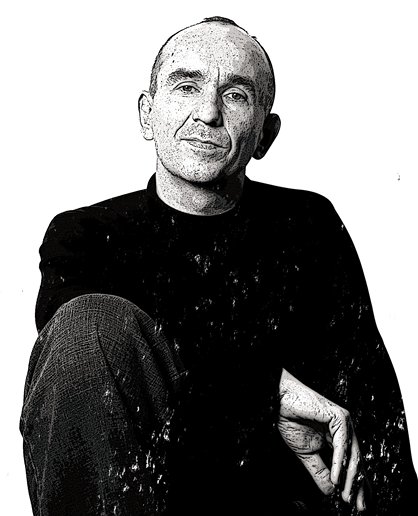
How has your take on Fable – how it works, what its aims are – changed over the years?
Let’s just talk about me as a director and the ideas that I’ve pushed and bullied through in this thing because the team is an amazing team. They’ve done a brilliant job.
I think the first mistake with Fable 1 was that I really mistook the idea of game features as goodness. I just stuffed it full of game features and didn’t think about the mechanics of those features or how to explain them to people or how to exploit them in the story. I can remember going into meetings three months before the game was on the shelves and saying, “I’ve just had this brilliant idea, why don’t we do this?” That was just insane, man.
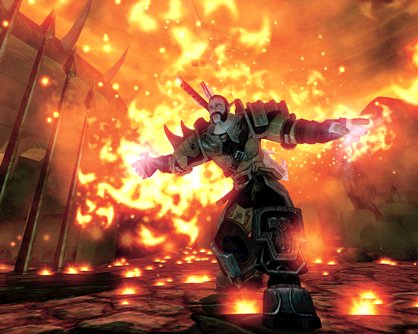
It was insane. You know, if you go into a shop and pick up a box and it’s covered in small writing in six-point font with all the features and its gadgets, you know it’s not going to be a pleasant experience. But if you go into a shop and there are other products… I mean, Apple do this ‘it’s a phone and it’s beautiful’ thing with their packaging, which is exactly it! Suddenly you’re, like, “oh right, so that’s what I want.”
Fable II was the dawn of the realisation that it’s not about the number of features you’ve got, it’s how we exploit them and what they actually mean to the player.
The story of Fable 1
Once a great kingdom, Fable’s Albion has been corrupted by an evil king’s use of magic and is now a largely lawless collection of townships and villages. It’s the time spoken of in Fable II as an age of heroes, one of which is a child born in Oakvale. After losing his entire family he grows up to become a hero himself, seeks revenge against the bandit who killed his father and imprisoned his mother, and eventually finds himself in possession of the former king’s magic sword. Four different endings await based on the hero’s slant towards good or evil, and whether he chooses to save his sister or the sword.
Sign up to the GamesRadar+ Newsletter
Weekly digests, tales from the communities you love, and more
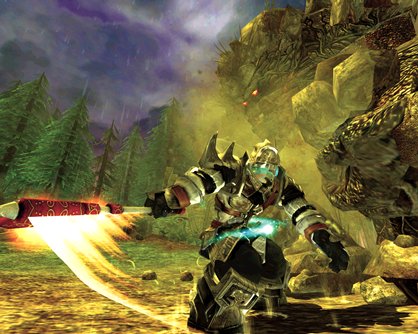
It was with Fable that Molyenux learned not to deliver a game which falls short of his promises. While Fable was massive, loaded with sidequests, and was a genuinely unique take on the RPG, it was criticised for its ‘missing’ features – ideas like childbirth which Molyneux discussed in interviews but never foundtime to squeeze into the game.
Fable has become more accessible with each entry. Would you say it’s a brave move to simplify traditionally beardy RPGs?
No, I think what it just comes down to is that you can design a game around ten percent of your audience if you want to but you’re probably being a bit lazy. Because you know what? The world moves on, man. For example, Coronation Street has continually reinvented itself over and over again. That’s the genius of what makes that programme so unbelievably successful. It’s a format that’s got a life of its own. Why shouldn’t Fable be the same?
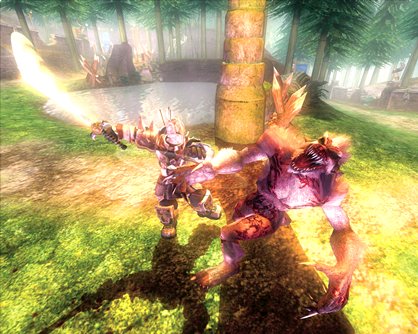
I love the idea of surprising people and getting people to do everything the game is capable of, and that’s all down to what they understand and the accessibility of what’s there. You know, I like Expressions and I like the ability to be able to emote but there’s just no real reason for me to do that in the game – but then you introduce the Touch system and the Follower system and suddenly you’re, like, “of course!” Now it fits in, now it’s part of the game, now there’s a reason for me to do that. There’s a consequence to me doing that and it all adds up.
Did simplifying things in Fable II take the RPG out of the game?
I’m not sure I personally call Fable an RPG. I mean it’s certainly not a nineties RPG. In a way you could look at it as an action-adventure. There’s a lot of drama, there’s a lot of story, there’s a lot of emotion in there, but we’re still levelling up. And you know, I love that levelling up mechanic; I’m not the kind of person who likes being given a pre-canned character and saying “this is you, no matter what”. But that’s just me, and that’s not to say it’s not okay to make games with Master Chiefs and all that – they’re brilliant, brilliant games.
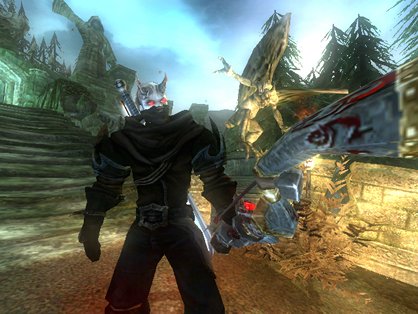
So why dump the usual experience system?
The absolute main reason is that most people didn’t understand it. You know, that’s just wrong. I really thought about why you just get experience for combat; it seemed wrong too. This game is about expressions and getting married, and doing things in the world should be as important as fighting.Everything you do in the game, including what you wear, including the way you fight, including the touch and expressions, can gain and lose you Followers. So for example, if I marry someone in the game, and that was the daughter of someone significant, say, the Mayor of the town, I get more Followers.
Same with the health bar. Here’s the thing about removing the health bar – we haven’t removed anything; we’ve just copied other games. In first-person shooters the health bar’s in the world. When your health gets low the corners of the screen go red, sometimes it gets black and white, sometimes it gets fuzzy – that’s a health bar, man. In Fable II we were making that bar smaller and smaller and last year when we were working on Fable III that bar was one pixel high. Why not just do what everybody else is doing and just put it in the world?
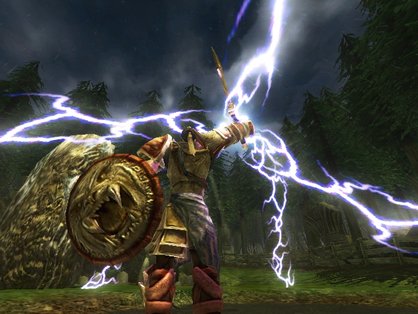
And one of the biggest problems with Fable and Fable II was the whole morphing system. It just didn’t work because it was based on experience spending; all those thousands of hours we put into the morphing system was all dependent on people spending experience – which they didn’t understand in the first place! Our fatal schoolboy… well, my fatal schoolboy error, was to have essential gameplay features locked in that experience screen. Everybody wanted Block so everybody had to spend experience on Strength, so that means there was one whole morph no-one ever saw. It was stupid. Me being stupid.


